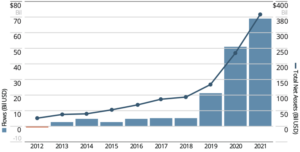DURHAM – A team of researchers mapping a molecular atlas for ductal carcinoma in situ (DCIS) has made a major advance toward distinguishing whether the early pre-cancers in the breast will develop into invasive cancers or remain stable.
Analyzing samples from patients who had undergone surgery to remove areas of DCIS, the team identified 812 genes associated with cancer progression. Using this gene classifier, they were then able to predict the risk of cancer cells recurring or progressing.
The study, which published this week in the journal Cancer Cell, was led by E. Shelley Hwang, M.D., of the Institutul de Cancer Duke, and Rob West, M.D., Ph.D., of the Stanford University Medical Center. Their work is part of the Human Tumor Atlas Network under the Moonshot Initiative funded by the National Cancer Institute.
“There has been a long-standing debate over whether DCIS is cancer or a high-risk condition,” Hwang said. “In the absence of a way to make that determination, we currently treat everyone with surgery, radiation, or both.
“DCIS is diagnosed in more than 50,000 women a year, and about a third of those women have a mastectomy, so we are increasingly concerned that we might be overtreating many women,” Hwang said. “We need to understand the biology of DCIS better, and that’s what our research has been designed to do.”
Hwang, West and colleagues analyzed 774 DCIS samples from 542 patients who were a median of 7.4 years post-treatment. They identified 812 genes associated with recurrence within five years from treatment.
The gene classifier was able to predict both recurrence and invasive progression of cancer, with progression appearing to be dependent on a process that requires interactions between invasive DCIS cells and the unique features of the tumor environment.
Hwang said most of the DCIS cancers analyzed in the study were identified to be at low risk for cancer progression or recurrence – a factor that underscores the need to have an accurate predictive model that can be used during clinical visits to guide care.
“We’ve made great progress in our understanding of DCIS, and this work gives us a real path forward to being able to personalize care by scaling treatments to the risk of cancer progression,” Hwang said. “The real goal is diminishing treatment-related harms without compromising outcomes, and we are excited to be getting closer to achieving this for our patients with DCIS.”
Pancreatic cancer breakthrough? Gel-like, radioactive implant obliterates it in mice
In addition to Hwang and West, study authors include co-principal investigator Carlo Maley, Ph.D., of Arizona State School of Life Sciences, and Graham Colditz, Ph.D., of Washington University at St. Louis, for the Breast Pre-Cancer Atlas Center, as well as collaborators from 12 other institutions as part of the Translational Breast Cancer Consortium.
The study is part of the Human Tumor Atlas Network Consortium of the National Cancer Institute, which is part of the National Institutes of Health (R01 CA185138-01, U2C CA-17-035, UO1 CA214183, R01CA193694). Other funding support was from the Department of Defense (BC132057); The Breast Cancer Research Foundation (19-074, 19-028, 18-006); PRECISION CRUK Grand Challenge (AEI RYC2019- 026576-I); “la Caixa” Foundation (LCF/PR/PR17/51120011); the Lundbeck Foundation (R288-2018-35); the Danish Cancer Society (R229-A13616); and Susan G. Komen.
(C) Universitatea Duke
- algoritmi
- blockchain
- Cancer mamar
- cancer de cercetare
- coingenius
- criptografie
- Cypher
- duke universitate
- genetică
- pagină de start
- ibm quantum
- Știința vieții
- ştiri
- Plato
- platoul ai
- Informații despre date Platon
- Jocul lui Platon
- PlatoData
- platogaming
- Cuantic
- calculatoare cuantice
- cuantic calcul
- fizica cuantica
- WRAL Techwire
- zephyrnet













